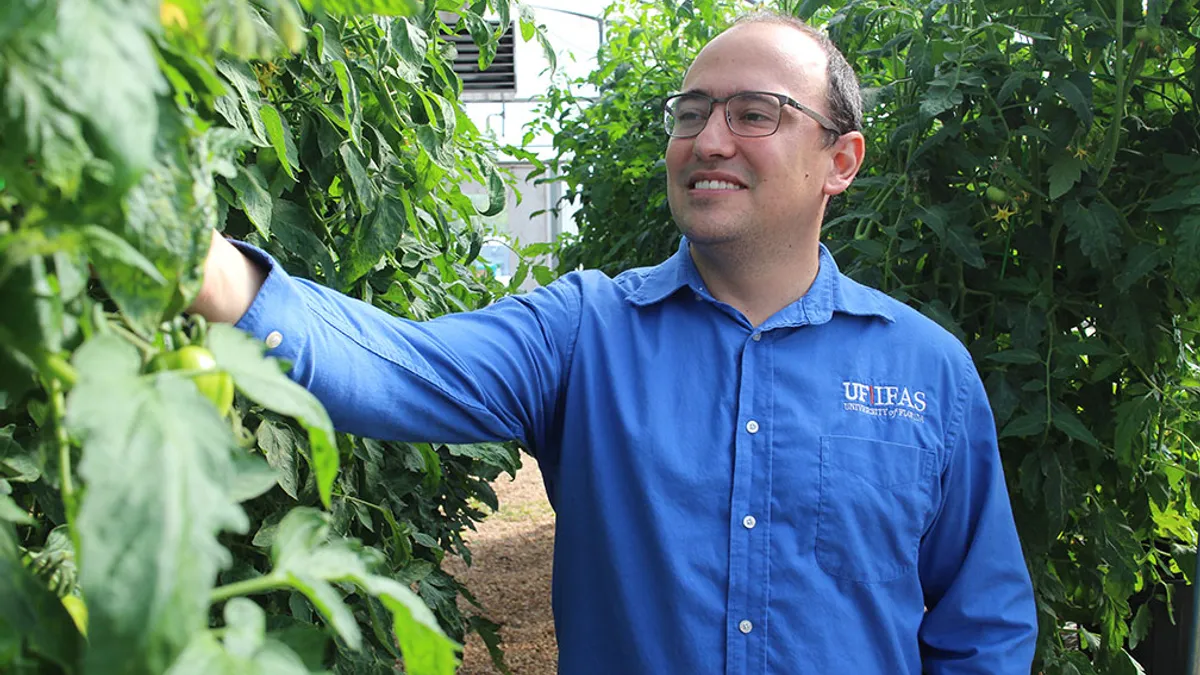Can AI tell farmers which crops will taste the best? Researchers at the University of Florida are trying to answer that question through the creation of an "Artificial Intelligence Connoisseur" that can identify which chemical compounds produce the best fruit flavors.
Experts are hopeful the technology could open new doors in crop breeding, which traditionally focuses on enhancing traits such as yield or disease resistance over taste and nutritional value.
"By using AI to help breed and plant crops that are not only more flavorful, but also better for our body and mind, we can contribute to a healthier society,” said Dr. Ilias Tagkopoulos, director of the USDA-funded AI Institute for Next-Generation Food Systems, which was not involved with the development of the tech.
Building an AI that can 'taste'
Researchers led by Dr. Marcio Resende, assistant professor at University of Florida's Institute of Food and Agricultural Sciences and a geneticist, created an AI model that so far has been tested on blueberries, tomatoes and strawberries. Through the analysis of chemical composition, the technology accurately predicted consumer preferences, facilitating the selection of flavorful crop varieties.
"It uses the data from consumer sensory scores for different crop varieties combined with the chemical composition from the same varieties to learn the compounds more positively or negatively associated with flavor," he said.
Developing the method was a data-intensive process that spanned years. Researchers collected extensive consumer sensory data and chemical composition data on hundreds of crop varieties. Subsequently, the teams at the university's tomato and blueberry labs evaluated various statistical models for prediction accuracy using the supercomputer HiPerGator.
University of Florida has the largest plant breeding faculty in the nation, and Resende has plans to expand the use of the technology beyond fruits to crops like sweet corn. Resende and a collaborator are also exploring its application in coffee research, potentially further diversifying its impact.
AI's role in the future of crop breeding
Artificial intelligence can make the plant breeding process more efficient, leading to faster development of sustainable and flavorful crop varieties.
However, while AI could predict the optimal mix of chemical compounds to achieve a desired flavor profile, it can't identify new compounds. Instead, the technology can only propose combinations from an existing database.
Additionally, building AI models requires a considerable amount of data, which could open the door to privacy and trust concerns from farmers.
Despite the limitations, major agribusinesses have invested heavily to build up AI capabilities within plant breeding. Bayer invests more in plant breeding research and development annually than any other agricultural research and development platform, and artificial intelligence has become a growing part of the company's playbook.
As the technology develops further, AI could be employed to be the starting point for discovering new compounds by comparing their chemical structures with known flavor compounds. Tagkopoulos says that the future of crop breeding in AI will also drive sustainability, resulting in “less pest resistance, less cost; better monitoring and control, less risk and more profit.”










